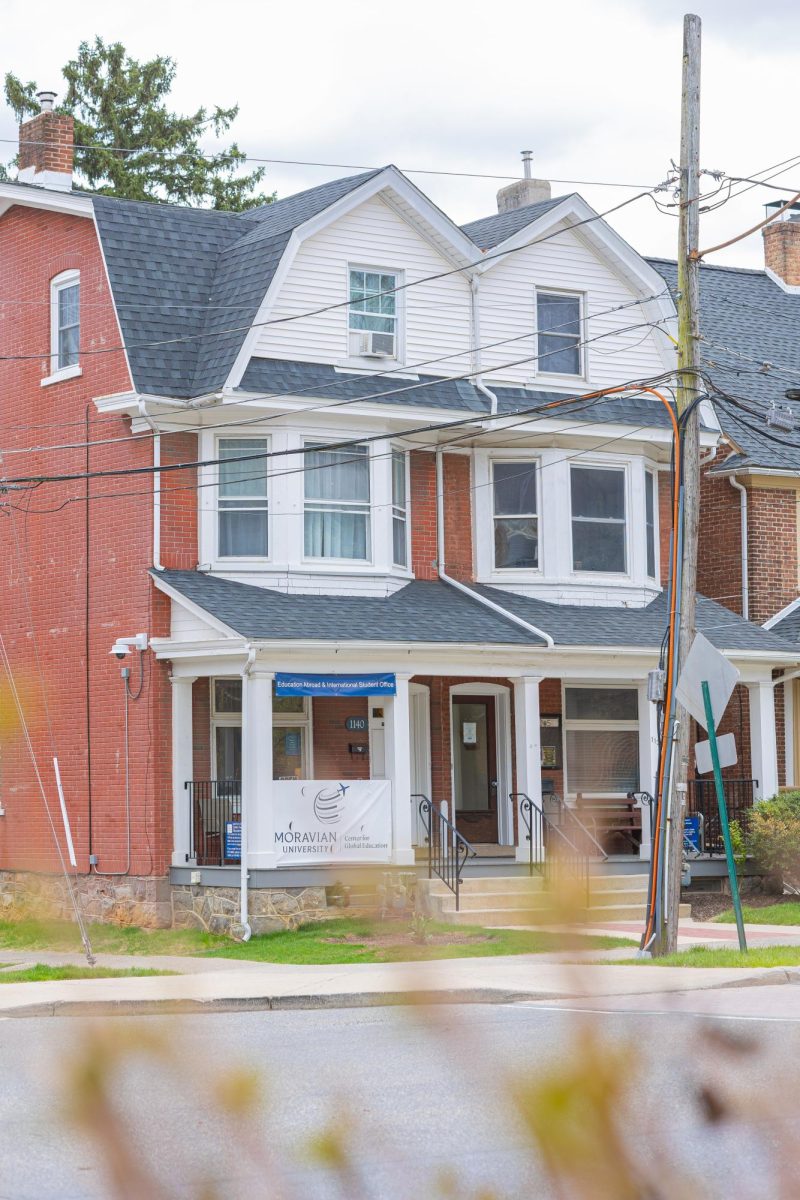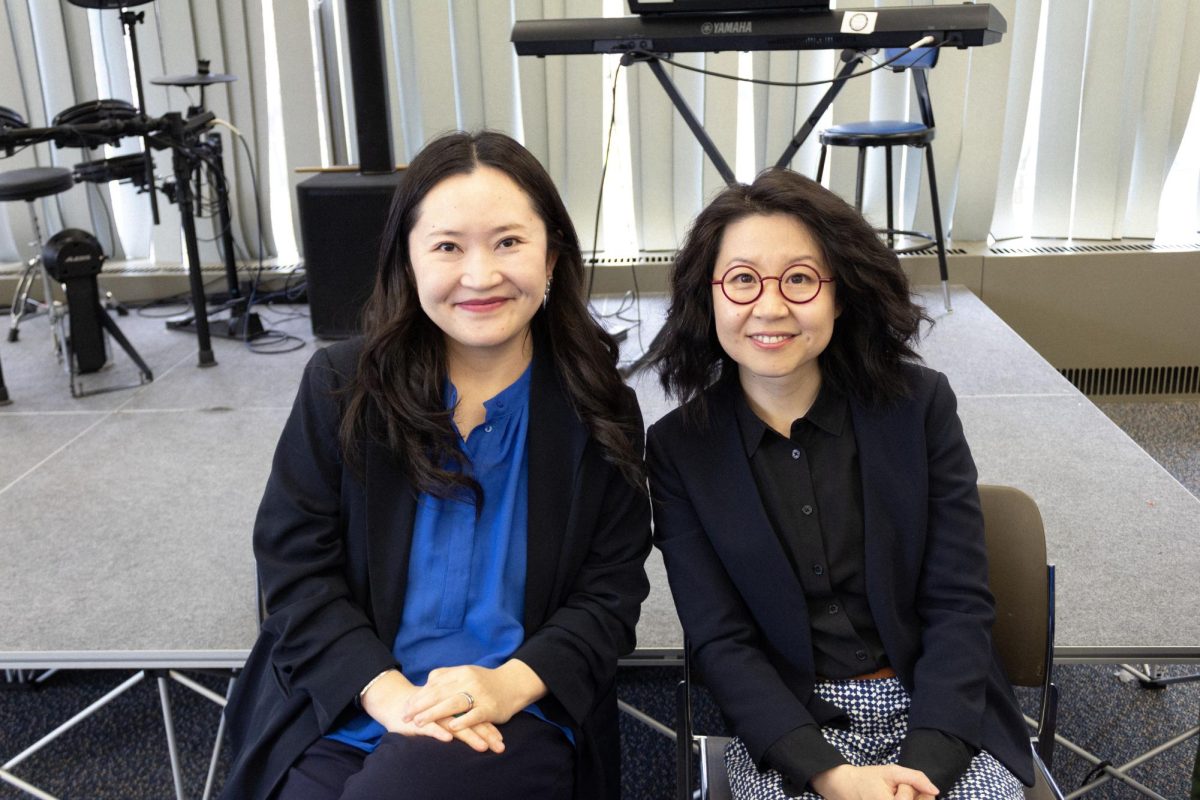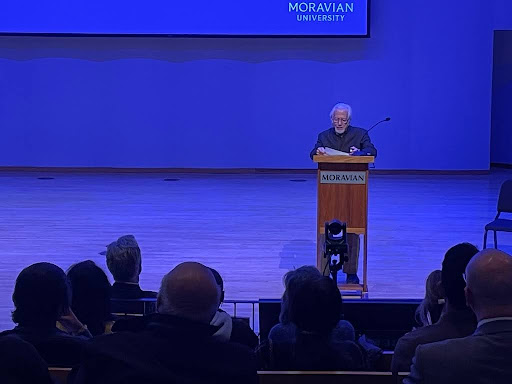
Upon returning from a five-month semester abroad at the University of Cordóba (UCO) in Spain, I was often asked, “What was your favorite part?”
My mind invariably raced between a variety of possible responses – about the different educational system, the food, or even the public transportation. In the end, I simply answered, “All of it.”
No other response I could think of encapsulated how I felt about living in Spain. The answer was an amalgamation of the total experience that changed me into the person I’ve become since that day in 2024 when I first left my home in Harveys Lake, PA, and boarded a flight to a city over 3,500 miles away.
Destination: Spain
As a Spanish major, I was required to spend a full semester in a Spanish-speaking country. I’d already gone to Costa Rica, so when the spring semester of my junior year approached, I opted to travel to a Spanish-speaking country I hadn’t been to before: Spain.
Getting Started
In order to get the process started, I reached out to the staff of Moravian’s Center for Global Education (CGE). Looking into their list of places to study in Spain, I saw two programs: Valladolid, in the northern half of the country, and Cordóbal in the south. I went with the warmer location.
For my application, the CGE acted as a mediator between me and UCO. It provided the Spanish school with a nomination of my attendance, gave me important paperwork to fill out, and shared the basics of what I needed to do to ensure that I had everything necessary for my new life abroad.
My job was getting there, which included: booking flights, searching for housing, researching Spain’s specific student visa processes, and selecting classes. Aside from the paperwork, the progress of getting to Spain seemed confusing, however, and required me to do a lot of legwork on my own. It felt as though I was given guidelines for what needed to be done, with little emphasis on how to do it.
For example, I needed a student visa, and I did hours of research to find out what documents I needed to bring with me and learn how to schedule an appointment. Similarly, finding housing came down to searching for trustworthy rental sites and hoping I found one reliable enough to wire a deposit to. Thankfully, everything worked out.
In terms of cost, studying abroad ended up being cheaper than at Moravian. Costs vary from program to program and one’s need for financial assistance. In my case, considering the base tuition for Moravian, plus the expense of renting an apartment, buying plane tickets, spending on necessities, and even extra travel while there, a semester at the University of Cordóba cost me less than a normal semester here.
Despite my experience, my peers who studied elsewhere reacted differently.
They were easily provided housing by their exchange university, and found easy access to visa information online. It’s possible that studying in Cordóba and Spain, specifically, facilitated a more difficult preparation phase. Moravian’s CGE is working to actively improve its program, listening to feedback from students and doing what is necessary to provide a simpler procedure. Since my return, they have even implemented a Trailblazers program, where you are partnered with a student who has already studied abroad – if possible, matching students by country of choice – and who can offer specific advice based on their own experience.
Acclimating
As classes start later in Spain, I departed in early February, still giving me a couple of weeks to properly acclimate to Cordóba before getting down to work. Upon arriving, I moved into a flat that I rented with other international students (although we didn’t quite get along that well!).
I explored the orange tree-lined streets of the city, taking note of grocery stores, restaurants, and historical places I wanted to return to whenever time permitted. Admittedly, being in a new place was quite nerve-wracking, but after spending time relaxing and exploring the area, I shifted my focus to the start of classes.
Because I was a Spanish major, four of the five classes I needed to complete were entirely in Spanish (although the university offers many courses in English). It was in an English course that I met my international friends. Our friendship started with someone from my Shakespeare class who, after a small conversation, told me he is from Germany and was spending his second semester abroad. Later, he introduced me to many others with whom I quickly became close.
Before I knew it, I had established connections with students from around the world – Hungary, Ukraine, Turkey, and the U.K., but only one from Spain. Ironically, despite the abundance of Spanish students, a professor told me that, for whatever reason, there tends to be a divide between native and international students, which often prevents them from connecting with one another.
Cordóba: A Livable City
Reflecting on my experience, I could endlessly list the variety of changes that I felt shaped my time in Spain. Yet for me, the best part of being abroad came down to being in a livable city with quick access to necessities.
At first, the idea of not having a car felt weird to me, but I quickly realized that it was the least of my concerns. Instead of needing to drive 20 minutes to the store, I could simply open up the door to my flat, make my way downstairs, and with a short walk reach almost anything I needed.
For things a little further out, I could rely on a convenient bus system that connected the entire city. I found myself quickly being able to enjoy myself, opting to spend less time locked in my room like I would back home. The idea of a 15-minute walk in comparison to a drive made a world of difference to my motivation. I would simply leave the house on a whim if I were bored and not return until night came.
My lifestyle as a whole adjusted to Spain’s more relaxed way of life. This was aided by the university’s longer class periods (four hours of in-class study a week for each). There is less homework, which allowed me to separate my personal life from my education. I no longer felt trapped by the constant stress of class work.
Between classes, my friends and I often walked down the street for lunch or went to the park and relaxed outside, or even had a drink or two. For an American, the slow-paced lifestyle may not be for everyone, but as someone who often feels that they can’t keep up and gets easily overwhelmed by the hustle and bustle, the change made a world of difference to my mental and physical health. I felt happier. I felt good.
Coming Home
Spain showed me how to change my life for the better and become a different person. But after five months – the longest time I had spent away from my family – I had to return home, where I began to fall into my old ways. Yet one thing was different: I knew that a different way of life – in a different place – awaits me, because after graduating from Moravian, I hope to work towards a certificate to teach English as a foreign language and make my return to Spain.








